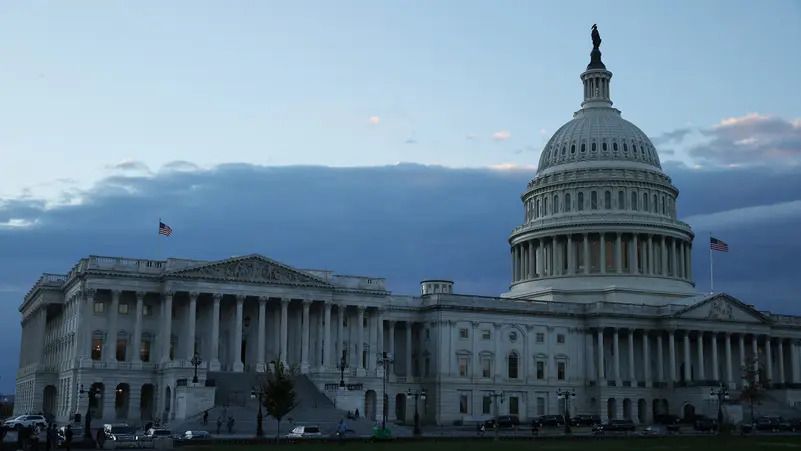- Home
- Middle East
- U.S. Congress Returns from Recess to Avoid Government Shutdown

The US Capitol in Washington, DC. ©AFP
U.S. lawmakers returned to Washington on Tuesday after more than a month of recess, during which the prospect of a federal government shutdown has only grown closer.
With a deadline set for September 30, Congress now has less than a month to act and pass a budget, even a temporary one.
If no agreement is reached, large parts of the federal government would shut down, leaving hundreds of thousands of civil servants furloughed, disrupting air traffic, and causing major delays in social benefit payments. Such turmoil would seriously impact the world’s largest economy.
Republicans hold majorities in both chambers of Congress, but Senate rules require the party to negotiate with Democrats to secure at least seven of their votes to pass any budget legislation.
A complicating factor is last week’s Trump administration decision to cut nearly $5 billion in additional foreign aid. Democratic leaders warned that attempting to reverse funds already approved by Congress would destroy any chance of bringing them to the negotiating table.
“Total War”
With these new cuts, Senate Democratic Minority Leader Chuck Schumer said in a letter to his caucus, “It is clear that Republicans are prioritizing chaos over governance, partisanship over partnership, and their own power over the American people.”
For the New York senator, “the only way to avoid a shutdown is to work collaboratively on legislation that can win both Republican and Democratic votes in the Senate.”
But it remains uncertain whether the White House will make concessions with the opposition, given that it has offered almost none in Congress since Donald Trump returned to power. Schumer described the situation as “total war” by the executive branch against the legislative branch and its constitutional budgetary powers.
Back in March, with the threat of a shutdown already looming, Republicans under Trump refused to negotiate with Democrats over massive budget cuts and the layoffs of thousands of federal workers. Ten Democratic senators, including Schumer, reluctantly voted for the Republican plan to prevent a federal shutdown, sparking backlash from party activists who accused them of yielding to Trump and his radical agenda.
This time, Schumer may be more determined to stand up to the president, even at the risk of a prolonged shutdown.
Epstein Case
The congressional agenda will also focus on documents from the Jeffrey Epstein legal case. Trump has been criticized for months by some of his base for a lack of transparency regarding the financier, who died in prison in 2019 before his trial on sexual crime charges. Despite promising sensational revelations to supporters, his administration announced in early July that no new evidence had been found that would justify releasing additional documents or reopening the investigation.
Democrats, and some Republicans, are pressing for these documents to be made public. Lawmakers, including Democrat Ro Khanna and Republican Thomas Massie, known as one of the few right-wing members willing to challenge Trump, are expected this week to try to force a House vote on the release of the Epstein files.
The issue continues to be a thorn for Trump, even as Republican leaders had hoped the summer recess would allow it to fade from attention.
AFP
Comments